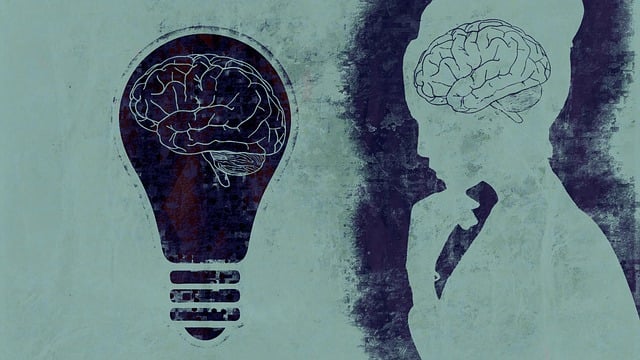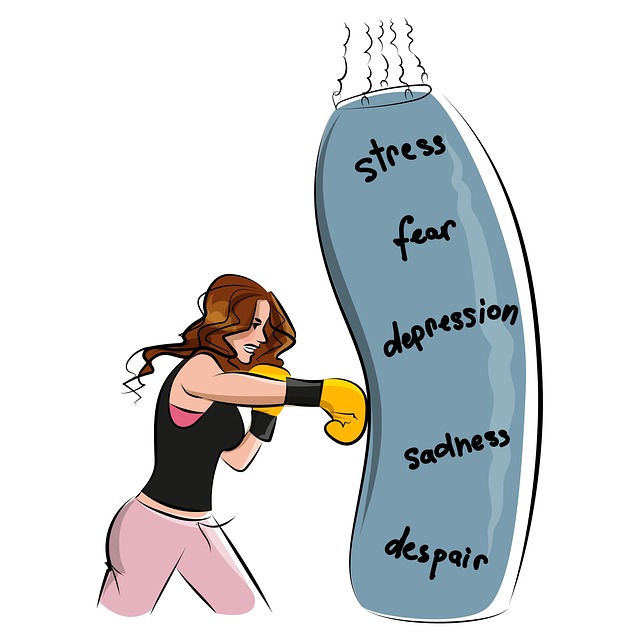Colorado Springs Abuse Survivors Therapy offers Social Skills Training (SST) tailored to help individuals with anxiety, depression, and PTSD overcome social challenges through coping strategies, positive thinking, stress management, and assertiveness training. This holistic program enhances communication, builds resilience, fosters meaningful connections, and promotes emotional well-being in a supportive environment, empowering survivors to navigate social interactions confidently while addressing mental illness stigma.
Social skills training is a transformative tool in mental health recovery, especially for survivors of abuse. This comprehensive guide explores how structured training can empower individuals in Colorado Springs to navigate social interactions with confidence. We delve into the profound impact of mental health conditions on social relationships and highlight the specific areas targeted during therapy sessions. By understanding these dynamics, we uncover the numerous benefits, real-world applications, and success stories emerging from Colorado Springs abuse survivors’ journeys.
- Understanding the Impact of Mental Health Conditions on Social Interactions
- The Role of Social Skills Training in Therapy for Survivors of Abuse in Colorado Springs
- Key Areas Focused On During Social Skills Training
- Benefits and Real-World Applications of Social Skills Training for Mental Health Recovery
Understanding the Impact of Mental Health Conditions on Social Interactions

Mental health conditions can significantly impact an individual’s social interactions, often creating barriers to meaningful connections and healthy relationships. Conditions such as anxiety disorders, depression, and PTSD can make even basic social exchanges challenging. For instance, someone with social anxiety might experience intense fear and avoidance of social situations, hindering their ability to form friendships or engage in community activities. Similarly, individuals with bipolar disorder may struggle with impulsivity and mood swings, which can lead to abrupt changes in behavior during conversations, affecting their social relationships.
In Colorado Springs Abuse Survivors Therapy, understanding these challenges is crucial. Therapists focus on helping clients navigate the complexities of social interactions by teaching them coping strategies tailored to their specific mental health needs. This involves promoting positive thinking and stress management techniques to build resilience and confidence in social settings. By addressing these issues head-on, survivors can enhance their mental wellness and create a supportive network, fostering a sense of belonging and overall well-being.
The Role of Social Skills Training in Therapy for Survivors of Abuse in Colorado Springs

Social Skills Training plays a pivotal role in therapy for survivors of abuse in Colorado Springs, offering a transformative path to healing and empowerment. Many survivors struggle with social interactions due to trauma, leading to isolation and compounded mental health challenges. This structured training equips individuals with essential communication strategies, helping them navigate interpersonal relationships more effectively. Through role-playing exercises and group discussions, survivors learn to express their needs assertively, set healthy boundaries, and foster meaningful connections.
In the context of Colorado Springs abuse survivors therapy, these programs focus on Mental Illness Stigma Reduction Efforts, promoting Emotional Well-being Promotion Techniques that encourage self-acceptance and resilience. By participating in Self-Awareness Exercises, individuals gain insights into their triggers and emotional responses, enabling them to manage stress and anxiety in social settings. This holistic approach not only enhances their support networks but also boosts self-confidence, contributing significantly to their overall recovery journey.
Key Areas Focused On During Social Skills Training

During social skills training for mental health conditions, several key areas are at the forefront of the program. One primary focus is emotional well-being promotion techniques. These sessions help individuals recognize and manage their emotions effectively, which is crucial for navigating social interactions with confidence and resilience. Through role-playing scenarios and group discussions, participants learn to express themselves openly while maintaining a sense of self-respect.
Additionally, cultural sensitivity in mental healthcare practice is deeply explored. Given the diverse backgrounds of those seeking Colorado Springs abuse survivors therapy, understanding cultural nuances becomes essential. Trainings equip participants with the knowledge to appreciate and respect different perspectives, fostering inclusive environments that promote genuine connections. This holistic approach ensures that social skills training is not just about improving interactions but also creating safe spaces where everyone feels valued and understood.
Benefits and Real-World Applications of Social Skills Training for Mental Health Recovery

Social Skills Training (SST) offers a range of benefits for individuals with mental health conditions, providing them with essential tools for reintegration and recovery. Through interactive exercises and role-playing scenarios, SST helps participants improve their communication, assertiveness, and conflict resolution skills. This, in turn, facilitates healthier interactions and relationships, fostering a sense of belonging and support crucial for emotional healing processes.
In the context of Colorado Springs Abuse Survivors Therapy, SST is instrumental in empowering survivors to navigate social environments with confidence. By mastering these skills, individuals can better assert their boundaries, communicate their needs, and seek help when needed. Moreover, SST equips them with burnout prevention strategies, enhancing their resilience and overall well-being. This approach complements traditional therapy methods, ensuring a more comprehensive and effective support system for mental health recovery, including the exploration of emotional intelligence as a key aspect of personal growth.
Social skills training has emerged as a powerful tool within the therapeutic landscape, particularly for individuals recovering from mental health conditions such as those experienced by survivors of abuse in Colorado Springs. By focusing on key areas like communication, empathy, and conflict resolution, this form of therapy equips participants with essential skills to navigate social interactions more effectively. The benefits are profound, fostering improved relationships, enhanced self-esteem, and a greater sense of belonging. For Colorado Springs abuse survivors, social skills training is a game-changer, enabling them to rebuild their lives and reassert control in a supportive environment.














